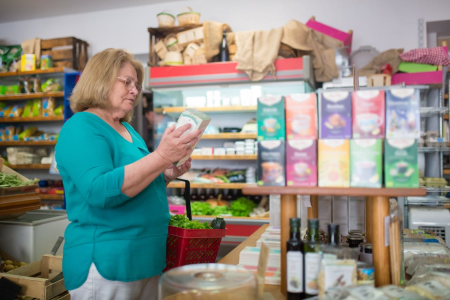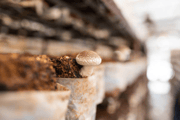Worried about diabetes and rising grocery costs? This health debate could affect both
By
Maan
- Replies 0
A renewed push for a sugar tax has ignited debate in Canberra.
With childhood obesity and type 2 diabetes on the rise, some experts say the government can no longer afford to wait.
But the federal Health Minister insists taxation isn’t the answer.
In the middle of National Diabetes Week, the Australian Medical Association (AMA) called for a sugar tax to curb consumption of sweetened drinks and tackle Australia’s growing health crisis.
They proposed a levy of 50c per 100g of added sugar, to be paid by beverage manufacturers.
Under this proposal, a 375mL can of full-sugar Coca-Cola—which contains 39.8g of sugar—would attract a tax of 19.9c, while a 600mL bottle of Berry Ice Powerade with 34.8g of sugar would incur a 17.8c charge.
Backing the push was Macarthur MP Michael Freelander, a Labor politician and practising paediatrician.
He argued that a sugar tax could prompt companies to lower sugar content, but said it should go hand-in-hand with broader education and urban planning strategies.
‘I think that we owe it to the next generation to try and make sure they are healthier than our generation,’ Dr Freelander told NewsWire.
‘And what we’re now seeing is children presenting with obesity and with type two diabetes. And we should not be seeing that.’
The Parliamentary Budget Office, in costings requested by Dr Freelander in 2024, found a 20 per cent tax on sugar-sweetened beverages could raise more than $1.3 billion in just two years.
Still, he recommended trialling the policy before committing to a wider rollout.
Dr Freelander emphasised that education remained the best path forward for public health—citing town planning that supports walking access to schools and shops rather than fast food outlets, and subsidies to improve access to nutritious food.
‘We do now see lots of societal changes that are causing health problems and one of the issues is the access to highly processed foods,’ he said.
AMA Vice President Julian Rait described the sugar tax as the ‘best chance’ of reducing obesity and chronic illness, including type 2 diabetes.
He said such a policy could reduce individual sugar consumption by 2kg each year and deliver an estimated $3.6 billion to the federal budget—funds he said could support other preventative health initiatives.
He noted that over 100 jurisdictions worldwide—including the UK, France, Mexico and Ireland—had already implemented similar levies.
‘For people at risk of developing type 2 diabetes, reducing sugar intake through swaps like drinking water over soft drinks can make a profound difference to their long-term health,’ Dr Rait said.
He also pointed to rising sugar content in Australian drinks, noting that ‘last year it was revealed the sugar content in popular soft drink Fanta had increased by 60 per cent, despite industry assurances that sugary drinks were being reformulated.’
Despite the mounting pressure, federal Health Minister Mark Butler ruled out a sugar tax in late May.
He said Labor’s priorities lay in improving food labelling and working cooperatively with manufacturers to reduce sugar levels voluntarily.
‘There is no plan in our government for a sugar tax,’ he said.
‘We’re instead focusing on education and also working with food manufacturers to reduce the amount of sugar that they put into their products.’
As of now, health information on food and drink packaging is provided through the voluntary Health Star Rating system.
It’s not just soft drinks that are under fire—fruit juice is also being scrutinised for its sugar content and potential health risks.
While it’s often marketed as a wholesome choice, some experts argue it could be doing more harm than good.
If you’ve ever reached for a juice thinking it was the healthier option, this next story might surprise you.
Read more: You thought fruit juice was the healthy choice—turns out, it could be doing serious damage

Would a sugar tax really make a difference—or is education alone enough to change the nation’s health habits?
With childhood obesity and type 2 diabetes on the rise, some experts say the government can no longer afford to wait.
But the federal Health Minister insists taxation isn’t the answer.
In the middle of National Diabetes Week, the Australian Medical Association (AMA) called for a sugar tax to curb consumption of sweetened drinks and tackle Australia’s growing health crisis.
They proposed a levy of 50c per 100g of added sugar, to be paid by beverage manufacturers.
Under this proposal, a 375mL can of full-sugar Coca-Cola—which contains 39.8g of sugar—would attract a tax of 19.9c, while a 600mL bottle of Berry Ice Powerade with 34.8g of sugar would incur a 17.8c charge.
Backing the push was Macarthur MP Michael Freelander, a Labor politician and practising paediatrician.
He argued that a sugar tax could prompt companies to lower sugar content, but said it should go hand-in-hand with broader education and urban planning strategies.
‘I think that we owe it to the next generation to try and make sure they are healthier than our generation,’ Dr Freelander told NewsWire.
‘And what we’re now seeing is children presenting with obesity and with type two diabetes. And we should not be seeing that.’
The Parliamentary Budget Office, in costings requested by Dr Freelander in 2024, found a 20 per cent tax on sugar-sweetened beverages could raise more than $1.3 billion in just two years.
Still, he recommended trialling the policy before committing to a wider rollout.
Dr Freelander emphasised that education remained the best path forward for public health—citing town planning that supports walking access to schools and shops rather than fast food outlets, and subsidies to improve access to nutritious food.
‘We do now see lots of societal changes that are causing health problems and one of the issues is the access to highly processed foods,’ he said.
AMA Vice President Julian Rait described the sugar tax as the ‘best chance’ of reducing obesity and chronic illness, including type 2 diabetes.
He said such a policy could reduce individual sugar consumption by 2kg each year and deliver an estimated $3.6 billion to the federal budget—funds he said could support other preventative health initiatives.
He noted that over 100 jurisdictions worldwide—including the UK, France, Mexico and Ireland—had already implemented similar levies.
‘For people at risk of developing type 2 diabetes, reducing sugar intake through swaps like drinking water over soft drinks can make a profound difference to their long-term health,’ Dr Rait said.
He also pointed to rising sugar content in Australian drinks, noting that ‘last year it was revealed the sugar content in popular soft drink Fanta had increased by 60 per cent, despite industry assurances that sugary drinks were being reformulated.’
Despite the mounting pressure, federal Health Minister Mark Butler ruled out a sugar tax in late May.
He said Labor’s priorities lay in improving food labelling and working cooperatively with manufacturers to reduce sugar levels voluntarily.
‘There is no plan in our government for a sugar tax,’ he said.
‘We’re instead focusing on education and also working with food manufacturers to reduce the amount of sugar that they put into their products.’
As of now, health information on food and drink packaging is provided through the voluntary Health Star Rating system.
It’s not just soft drinks that are under fire—fruit juice is also being scrutinised for its sugar content and potential health risks.
While it’s often marketed as a wholesome choice, some experts argue it could be doing more harm than good.
If you’ve ever reached for a juice thinking it was the healthier option, this next story might surprise you.
Read more: You thought fruit juice was the healthy choice—turns out, it could be doing serious damage
Key Takeaways
- The AMA proposed a 50c per 100g sugar tax on sweetened beverages.
- Dr Michael Freelander backed the move but emphasised the importance of education and urban planning.
- The levy could generate $3.6 billion and reduce sugar intake by 2kg per person.
- The federal government has rejected the idea, prioritising education and voluntary reform.
Would a sugar tax really make a difference—or is education alone enough to change the nation’s health habits?








